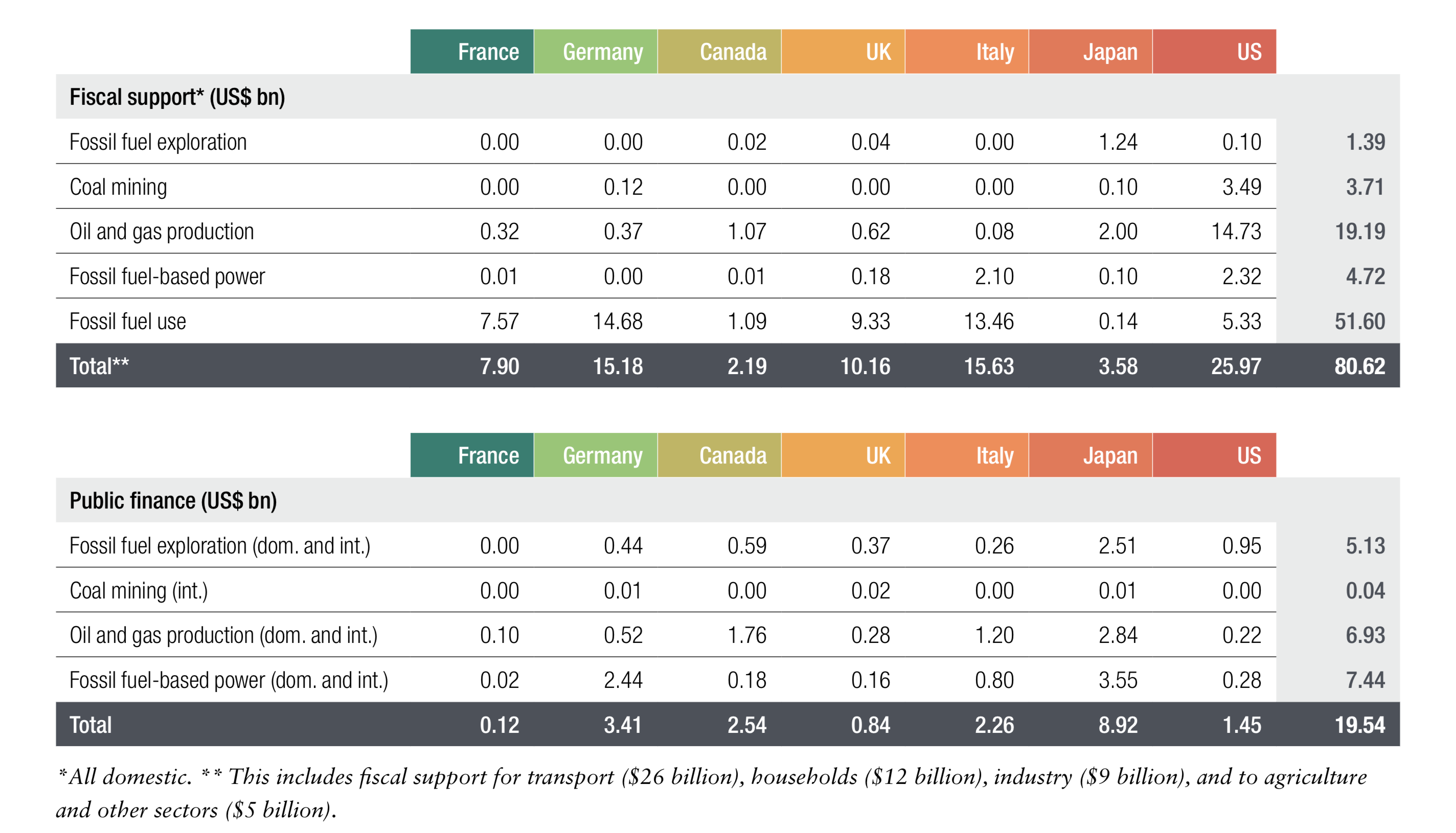Despite a global pledge to end fossil-fuel subsidies by 2025, G7 countries continue to use public resources to find, extract and exploit these sources of energy, the ODI concluded in analysis released today.
The report, published ahead of this week’s G7 summit in Canada, said such sums explained why there is a “serious risk” rich countries would not deliver on their commitments to phase out subsidies by the target date.
Shelagh Whitley, the report’s lead author and head of climate and energy at the ODI think-tank, said: “Despite repeated pledges to eliminate fossil fuel subsides, G7 countries are continuing to subsidise oil, gas and coal, fuelling dangerous climate change with taxpayers’ money.”
ODI, in collaboration with Oil Change International, the Institute for Sustainable Development and the Natural Resources Defense Council, has ranked G7 countries on their transparency, commitments, and the progress they have made on ending support for the production of fossil fuels.
They found that all G7 governments have provided new public finance for oil and gas since 2016, when the Paris Agreement took effect.
In 2015 and 2016, these governments forked out at least $81bn in fiscal support and $20bn in public finance for the production and consumption of oil, gas and coal at home and abroad.
Fiscal support refers to budgetary transfers and tax expenditures, while public finance includes grants, loans, equity infusions and guarantees, the report said.
The US ranked lowest in terms of the progress it has made in phasing out subsidies, due both to continuing support for fossil-fuel exploration and production but also because it has backtracked on pledges to end subsidies. It subsidised the oil, gas and coal sectors to the tune of $25.97bn in fiscal support and $1.45bn in public finances in the 2015–16 period.
France ranked highest in terms of the progress it has made in ending support for fossil fuels. It has taken steps to phase out fossil-fuel production and use in generating power, yet spent a total of $8bn on subsidising the sector in 2015–16.
The UK – which spent $11bn on subsidies in 2015–16 – scored lowest in terms of government reporting on subsidies, exhibiting what the report termed “extremely poor transparency”. The authors highlighted the fact that despite high-level commitments and calls to end subsidies, the British government denies that it provides any at all.
Canada, which holds the G7 presidency this year, scored highly on ending its support to coal mining, fossil fuel-based power and the overall use of fossil fuels, but had the worst ranking on support for oil and gas production. It provided $2.19bn in fiscal support and $2.54 in public finances.
Germany provided a total of $18.32 in fiscal support and public finances, Japan $12.5bn, and Italy $17.89bn.
The G7 and G20 have committed their members to phase out fossil-fuel subsidies every year since 2009. At a 2016 leader’s summit in Japan, countries set a 2025 deadline for meeting this target.
The report called on the G7 to publish fossil-fuel subsidy peer reviews no later than 2019, establish country-level plans for phasing out subsidies, and ensure subsidies for the transition to green forms of energy.
G7 fiscal support and public finances to oil, gas and coal in 2015 and 2016:
Credit: Overseas Development Institute








